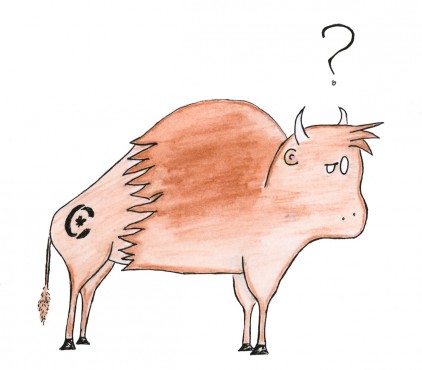Bison once played a key role in Banff National Park’s ecosystem. According to a new version of Canada’s national conservation plan, they may do so again. The Harper government announced on March 6 that 30–50 bison would be released in the park in about four years time. The government went on to state that they’re still in the planning stages and welcome First Nations and community input on any traditional knowledge of the bison as this moves from plan to action. It’s no secret that the Harper government has placed environmental action on a back-burner in the past in favour of other issues such as foreign affairs and the economy; however, this move should be seen as a positive step for the government’s role in relation to the environment.
The question on everybody’s mind is: why did they choose to announce this now? The answer could simply be that the Harper government needs an environmental edge in the election year. The Conservatives are expected to get hammered over environmental issues in the polls and in the debates. The environment is an increasing concern amongst Canadians, evident in the fact the Green Party of Canada won a seat in the House of Commons in the last election, and in the provincial legislature of B.C. The Harper government needed to find a way to compete with the more environmentally friendly NDP, Liberal, and Green parties in order to maintain and garner new support before the federal election slated for October.
In a March 17 op-ed in the Gateway, the University of Alberta’s official student newspaper, Jamie Sarkonak described past attempts to reintroduce the bison that were backpedaled when the designated fenced-off area (at 500 sq. km) disturbed other species trying to move through the area. Sarkonak wrote that the government only chose bison and Banff because it was the most popular national park in the country, and that “[the government] should be funding the recovery of what caribou we have left in the province, not playing Zoo Tycoon in Banff.”
Comments on the CBC message boards highlight several complaints from the public over this announcement, stating that it does not go far enough and that more needs to be done. While the latter is certainly true, Canadians should look at this announcement for what it is: a positive step. The hard fact is that political parties are always seeking to bolster their war chest and solve any issues that they have neglected prior to an election. So, while this announcement may have been a PR stunt — turning the public attention away from the government’s past environmental record — it should be applauded that there is at least some progress.







